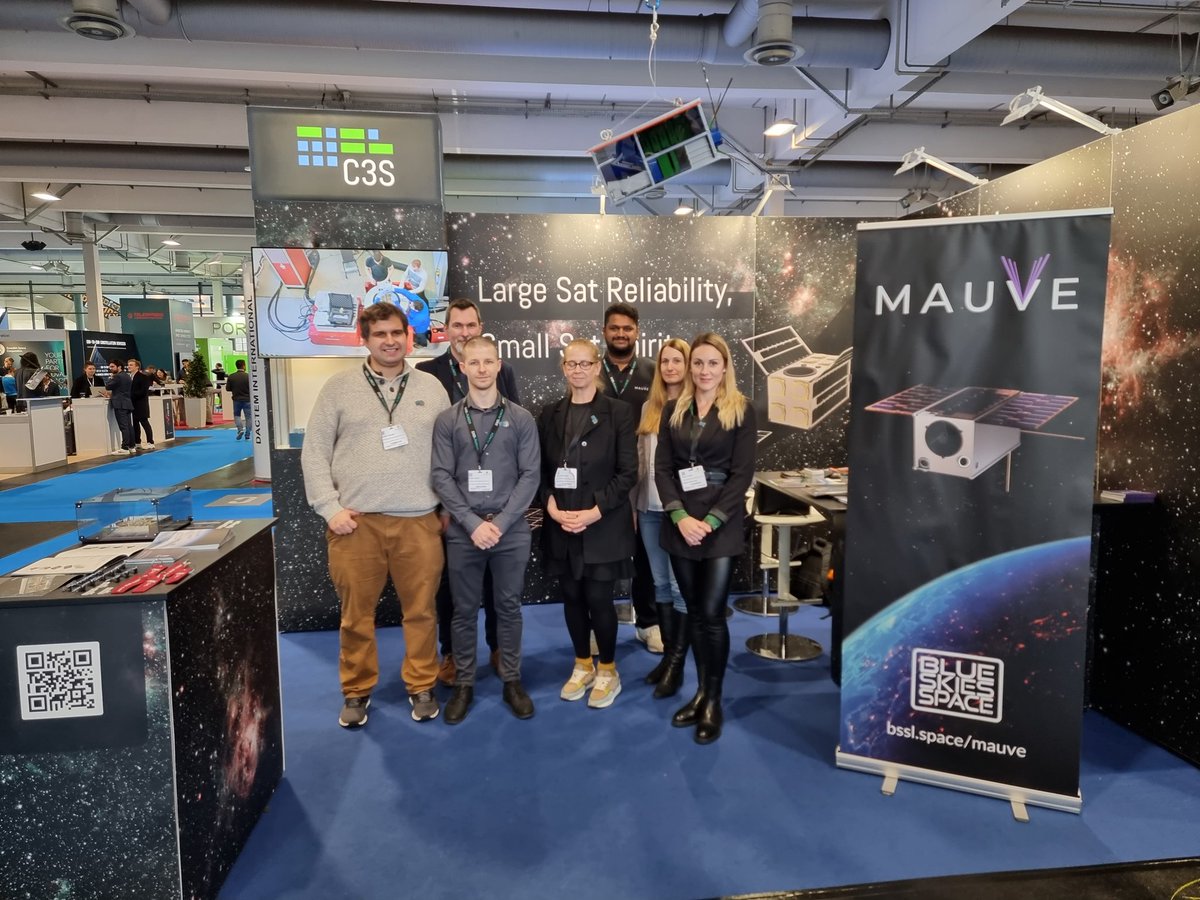U.K. startup Blue Skies will deploy its first satellite via SpaceX’s rideshare, launching a “new era of space research” with astronomy data sold “as a service”
A Falcon 9 rocket will be employed by SpaceX’s Transporter 15 program next year to transport payloads from third-party companies into space, including those of London-based Blue Skies Space.
Blue Skies Space has disclosed that its inaugural Mauve satellite will be included in the October 2025 launch, similar to previous missions.
The satellite, intended to supplement the data generated by current astronomical endeavors, such as the renowned Hubble Telescope, will concentrate on stellar spectroscopy (the spectrum of light emitted by stars).
This field can deliver various information, including the composition, temperature, density, mass, distance, and luminosity of stars.
Marcell Tessenyi, CEO and co-founder of Blue Skies Space told TechCrunch that Mauve intends to conduct extended observation campaigns of hundreds of stars in our galaxy. This will facilitate the advancement of critical research on stars.
The remit may also encompass the magnetic activity of exoplanet hosts to disclose the effects of UV radiation on photochemistry. Among the proposed scientific use cases is the study of stellar flares, which will examine their frequency, energy distribution, and physical properties.

Image Credits: Blue Skies Space
While other private companies collect and monetize space data, many are ground-based telescopes that observe deep space or satellites that provide observation data about Earth.
Blue Skies distinguishes itself by collecting data on space from various sources and providing it in a user-friendly format through a subscription-based membership model.
Researchers from Boston University and the National Astronomical Observatory of Japan have already participated in this program, having signed up before its launch to contribute to the program’s design, which includes determining the location and duration of the Mauve satellite’s space observations.
“We will be the first private company to offer astronomy data as a service,” Tessenyi stated. “We provide the community with access to new scientific satellites and data sets, available to all who wish to participate.”
This novel approach significantly enhances the scientific community’s agility and complements the large, high-capability, and high-demand facilities that government agencies typically provide.
Since its inception, the company has raised approximately $6.5 million, with approximately two-thirds of the funds coming from equity investments from small investors, such as the U.K. venture fund SFC Capital and Japan’s Sparx Group.
The remaining funds have been obtained through grants, including those from the Horizon R&D program of Europe.
Commercialize the universe
Blue Skies Space, established in 2014, is the product of a team of academics, including Tessenyi, who holds a doctorate in astrophysics from University College London (UCL).
The startup has endured a protracted journey to this point, as it has undergone the “standard mission proposal processes” with the conventional space agencies, as Tessenyi refers to them.
Nevertheless, the emergence of the “new space” industry, defined by private companies’ commercialization of the cosmos, is creating new opportunities for businesses of all sizes and sectors.
Tessenyi stated, “We spent numerous years collaborating with the global science community to validate our model and gain a more comprehensive understanding of their data and science requirements.”
“The Mauve’s launch was made possible by many internal circumstances, but the space ecosystem was significantly altered by the “new space” movement over the past decade. Consequently, we identified the appropriate manufacturing partners and team members to execute our vision.”

Image Credits: Blue Skies Space
Blue Skies decided to outsource the engineering work to more experienced manufacturers, such as Hungary’s C3S and the Dutch company Isisspace, rather than constructing its satellites.
Blue Skies established and converted the scientific requirements into technical specifications. This comprises a UV-visible spectrometer and a 13cm telescope.
Concurrently, Blue Skies is developing a second satellite, Twinkle, which Airbus will manufacture. This will be equipped with a Teledyne sensor, a giant telescope, and a visible-IR spectrometer, specifically emphasizing spectroscopic measurements of the atmospheres of distant exoplanets.
Blue Skies has not disclosed the cost of its membership, stating that it will provide this information “soon.”
Despite its funding and endeavors to launch a satellite into space, Blue Skies maintains a reasonably lean operation. The company has a workforce of only 12 individuals located in the United Kingdom and Italy.



